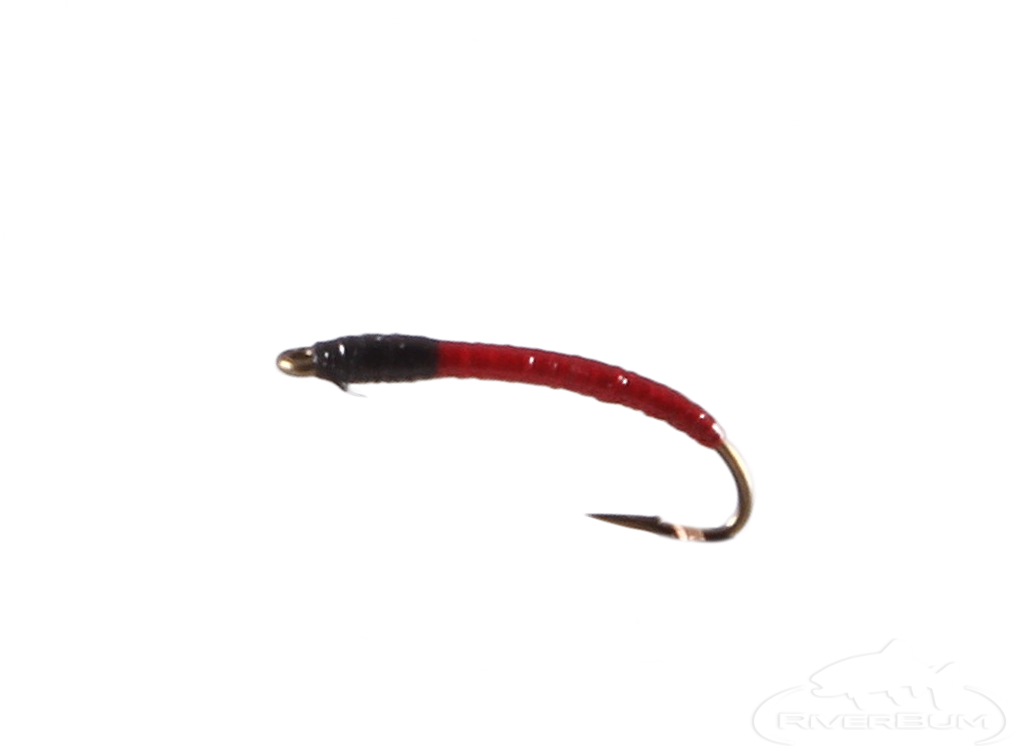
Blood Midge
The Blood Midge Fly like many other species of midge species exhibits a red coloration in their larval stage. This fly is useful in both river and lake environments since midges are usually the most prolific insects available to trout. This fly can be fished in its larger sizes where chironomids are found or in any stream where midges are an important trout food. It excels in some of the larger tailwaters of the West like the Green, San Juan, and Big Horn.
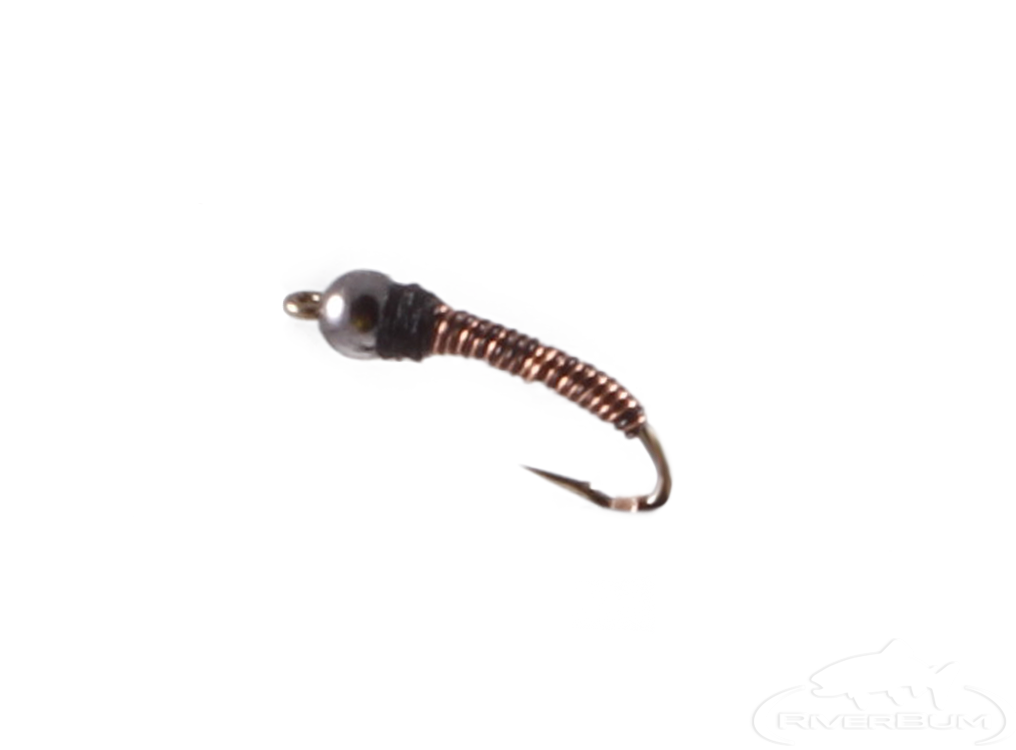
Brassie, Bi-Color, Bead Head, Copper-Black
The Copper-Black Bi-Colored Brassie has a segmented appearance given by alternating wire colors and a slim dubbed head. Brassies are proven patterns in all waters using multiple techniques and the Copper-Black Bi-Colored Brassie is a critical pattern in that group. This is a staple midge pattern that is very effective, drawing fish with its midge characteristics and flashy appeal. A collection of various Brassies need to occupy at least a couple of rows in your fly box.
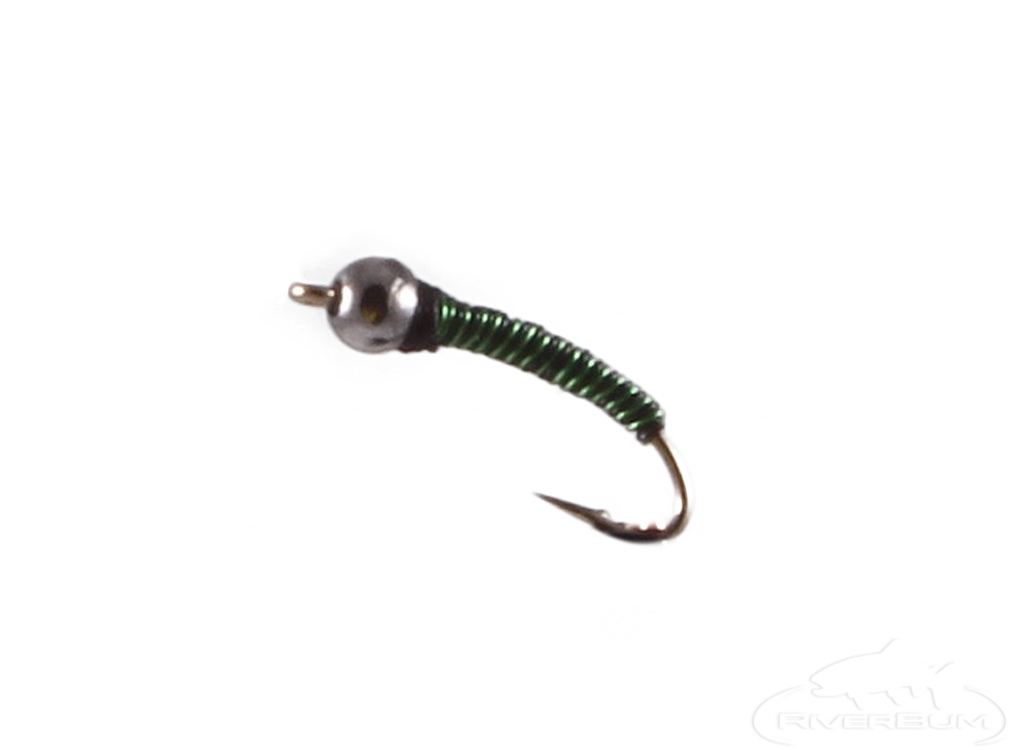
Brassie, Bi-Color, Bead Head, Green-Black
The Green-Black Bi-Colored Brassie has a segmented appearance given by alternating wire colors and a slim dubbed head. Brassies are proven patterns in all waters using multiple techniques and the Green-Black Bi-Colored Brassie is a critical pattern in that group. The olive/black contrast of this fly makes it a good imitation for stillwater Chironomids. A collection of various Brassies need to occupy at least a couple of rows in your fly box.
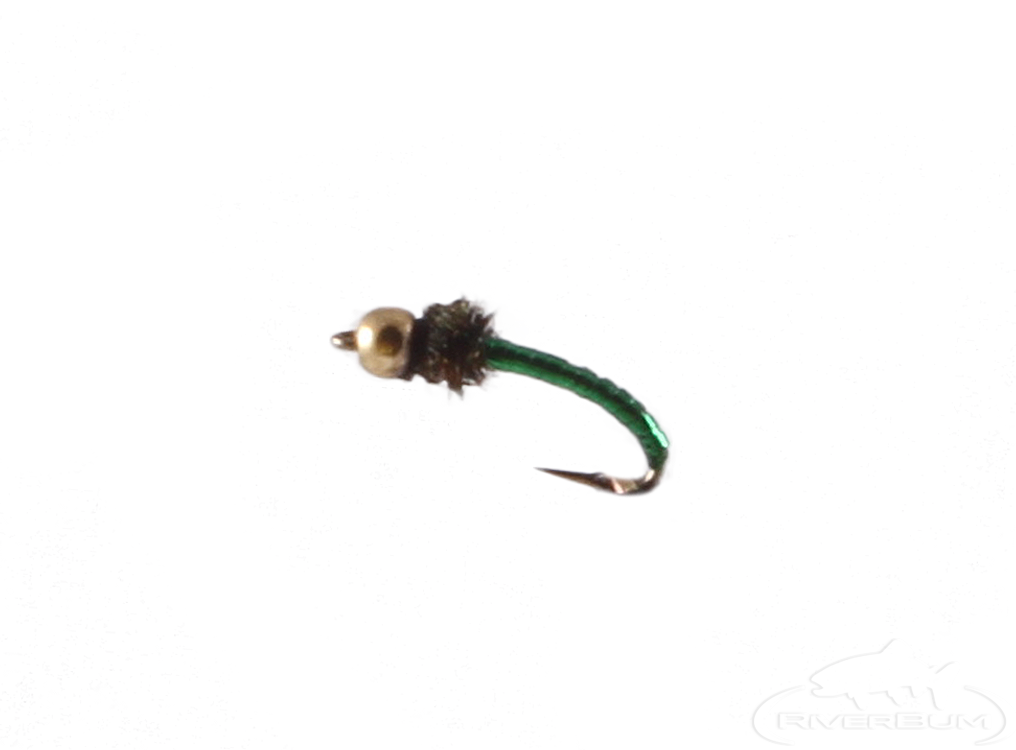
Disco Midge, Bead Head, Green
The Green Bead Head Disco Midge takes flash to new levels. This midge larva pattern is highly visible and highly effective for aggresive trout in waters where midges make up a large part of their diet. It is one of the best midge patterns in slightly dirty water or tailwaters with a lot of drifting debris.
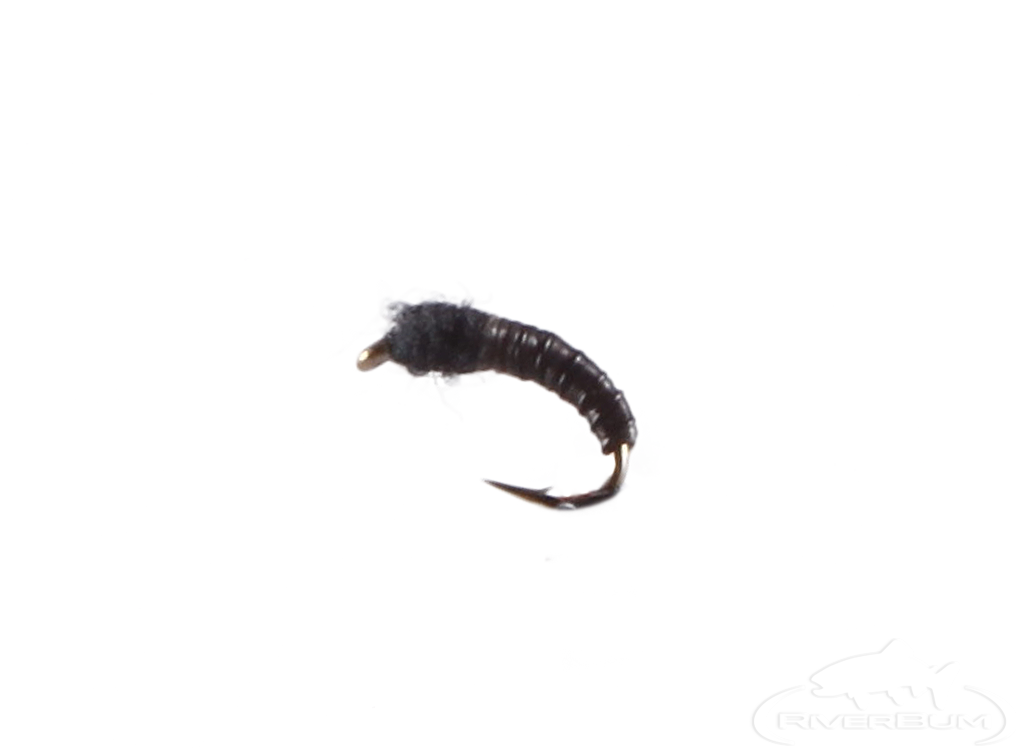
Rubber Midge, Black
The Black Rubber Midge is a simple, sparsely dressed Midge pattern. Many times simple can be deadly effective and this fly fished to midging trout can be just such a pattern. Suspended as a dropper just under the surface or presented delicately drifting in the deeper water section the Black Rubber Midge can be a successful pattern in your midging pursuits.
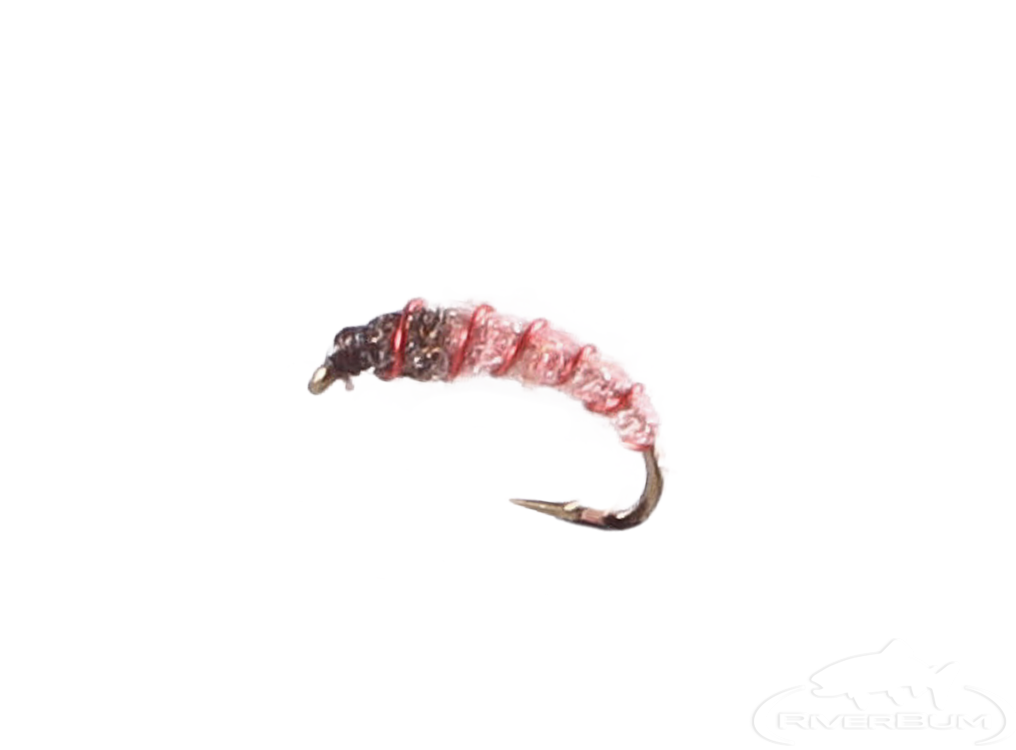
Czech Nymph, Pinky Passion
Another colorful fly in the Czech-Mate series of flies designed specifically for European or Czech-style nymphing, this lightly weighted fly works perfectly as the top or bottom fly in a Czech-style rig. Designed to be fished either above or below a heavier fly, the Pinky will roll along the bottom and entice fish to strike in faster-moving water.
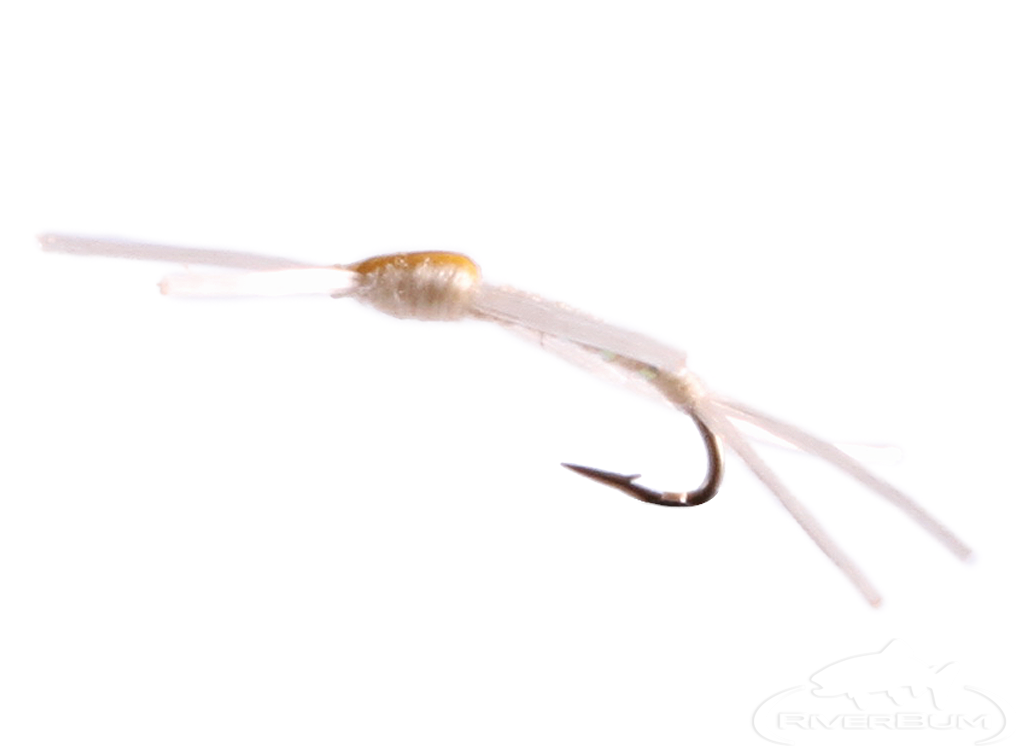
Ghost Nymph, Tan
The Tan Ghost Nymph is a unique new fishing fly developed on the West's best fly fishing tailwaters. It's a useful mayfly nymph imitator and attractor or searching nymph. Every fly fisher should give this new nymph pattern a try.
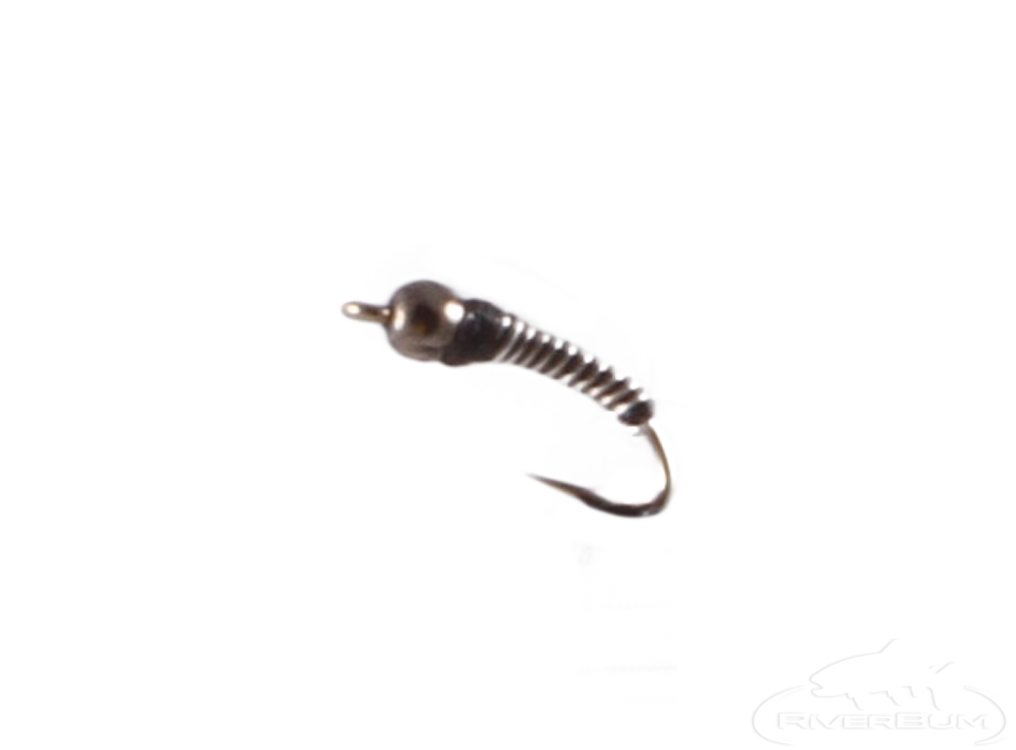
Brassie, Bi-Color, Bead Head, Silver-Black
The Silver-Black Bi-Colored Brassie has a segmented appearance given by alternating wire colors and a slim dubbed head. Brassies are proven patterns in all waters using multiple techniques and the Silver-Black Bi-Colored Brassie is a critical pattern in that group. This is a staple midge pattern that is very effective, drawing fish with its midge characteristics and flashy appeal. A collection of various Brassies need to occupy at least a couple of rows in your fly box.
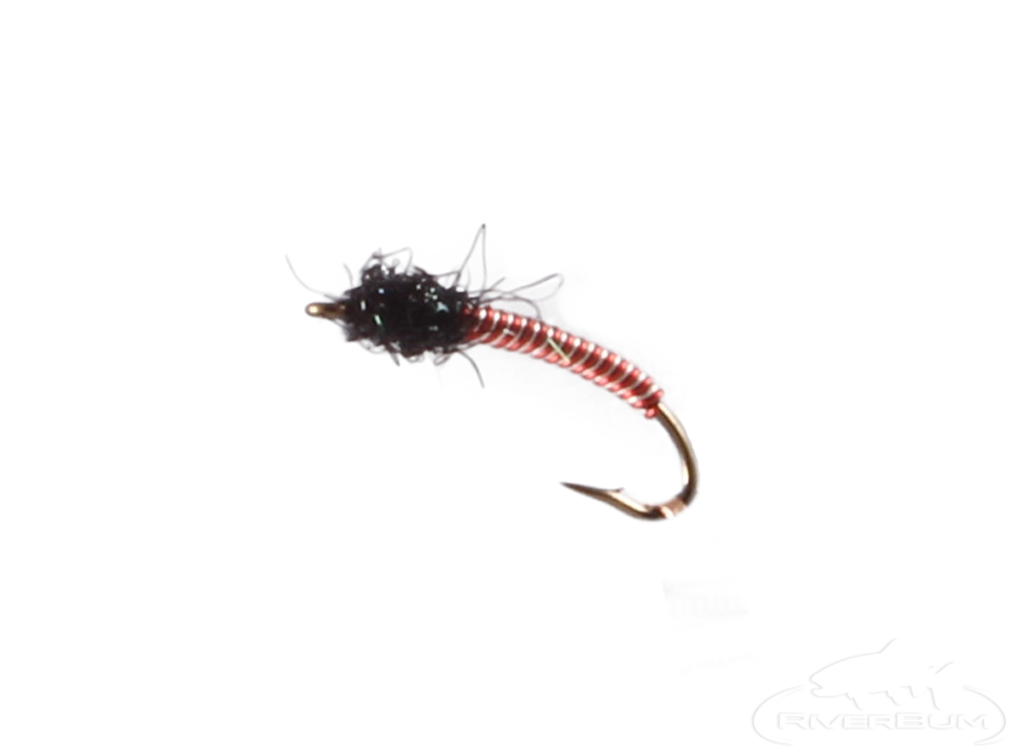
Brassie, Bi-Color, Silver-Red
The Silver-Red Bi-Colored Brassie has a segmented look given by alternating wire colors and a slimmer dubbed head has made this fly even more realistic and fishy than its popular predecessor. Use this fly wherever midges are an important food item. Aggressive trout seem to prefer this heavier flashier fly to many other midge imitations.

Crystal Midge, Olive, Tungsten Bead
This lifelike pattern tempts the strikes out of the pickiest trout. Ideal in spring creeks, streams and rivers. The Crystal Midge, Olive, Tungsten Bead gets the fly down in the water column quickly. This is a must have for picky trout feeding on the tiny insects.
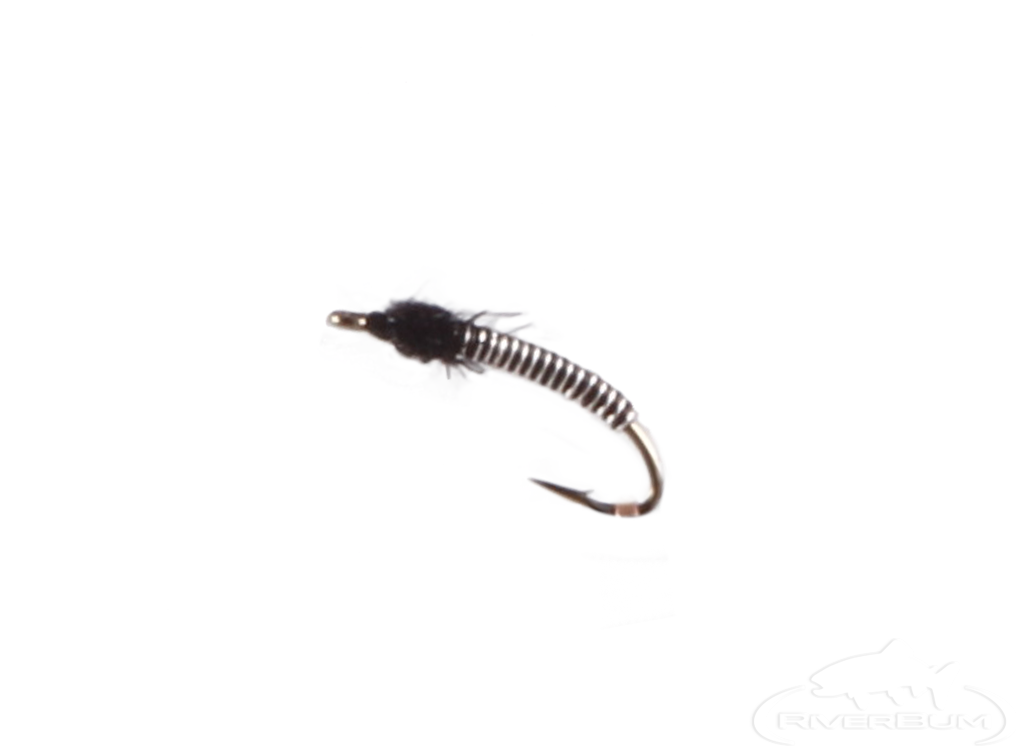
Brassie, Bi-Color, Silver-Black
The Silver-Black Bi-Colored Brassie has a segmented look given by alternating wire colors and a slimmer dubbed head has made this fly even more realistic and fishy than its popular predecessor. Use this fly wherever midges are an important food item. Aggressive trout seem to prefer this heavier flashier fly to many other midge imitations.
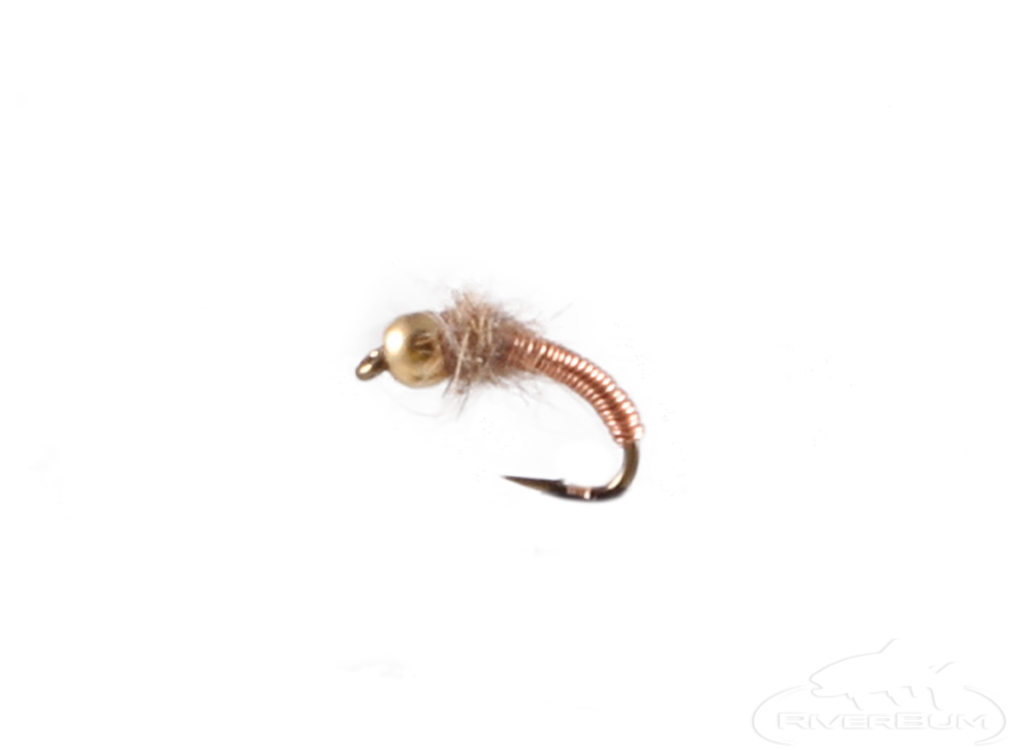
Brassie, Bead Head, Natural
The basis for the Natural Bead Head Brassie was found years ago some wise or lucky flyfisher that discovered a little wire wrapped around a hook would catch fish. The addition of a buggy looking head has made this one of the most successful nymphs ever. The brassie is a useful attractor or midge larva in most places where trout and grayling are found.
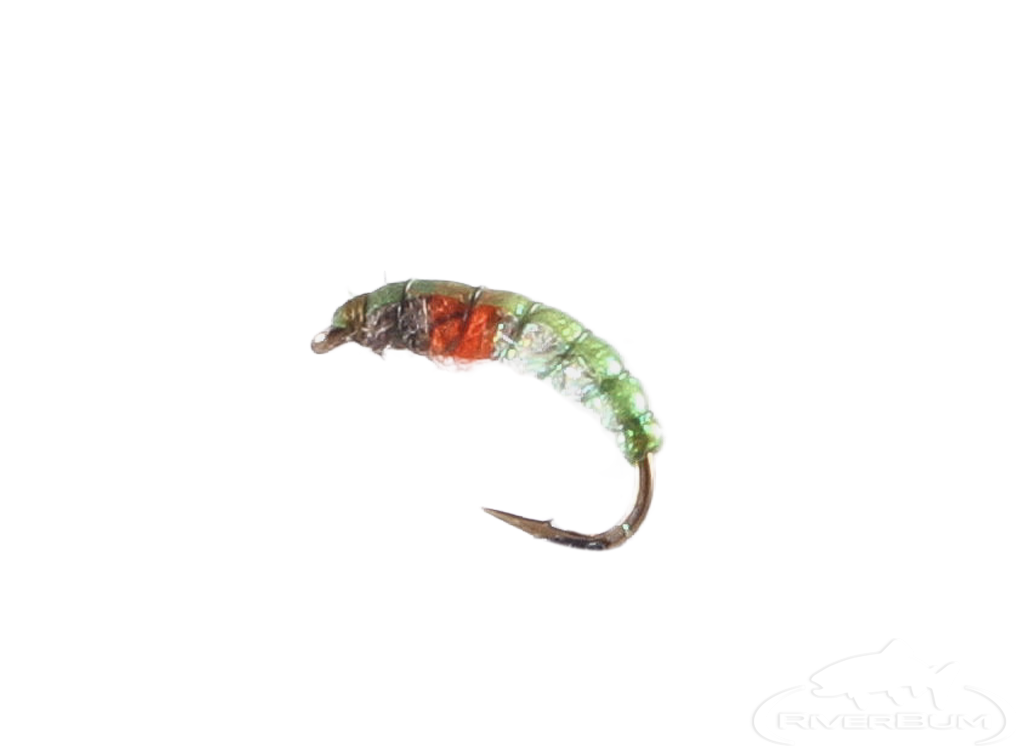
Czech Nymph, Sparkle & Orange
Most Czech nymphing is done in faster moving water, in runs fly anglers would typically bypass. A large portion of Czech nymphs have what tiers call "hot spots," which help the flies stand out underwater, and the Czech-Mate Sparkle & Orange is a vividly colored nymph, proven to catch fish using a variety of nymphing techniques.
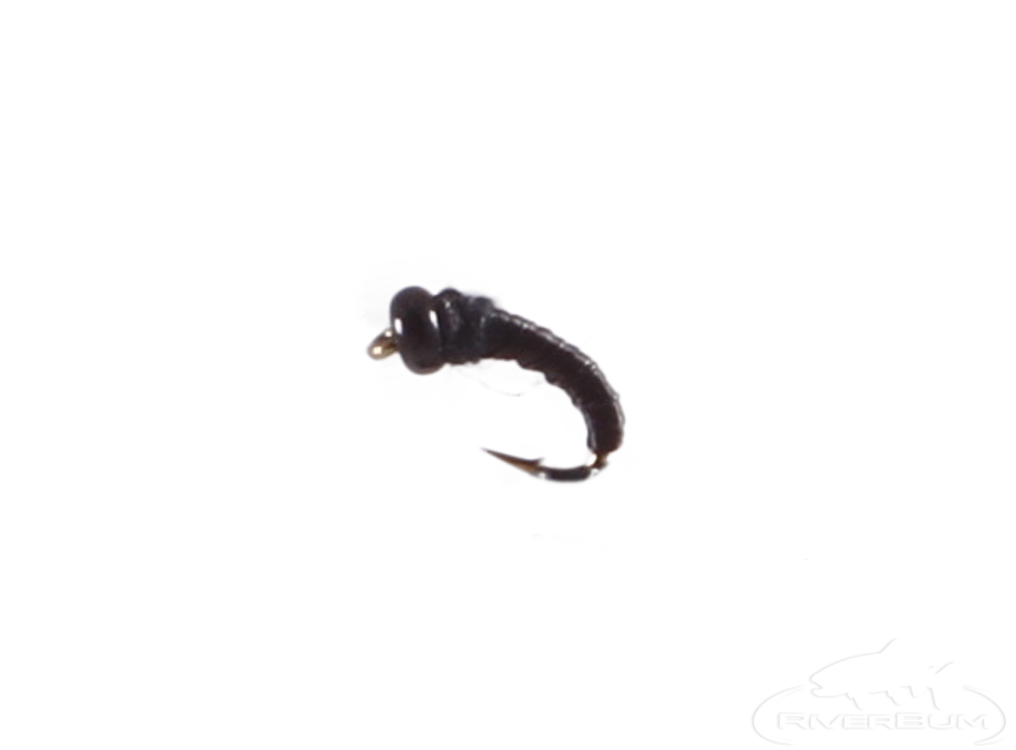
Rubber Midge, Bead Head, Black
Midge fishermen never seem to stop at just a few patterns in their arsenal when it comes to choices to tie on when casting to a promising piece of water. The Black Bead Head Rubber Midge is a simple Midge pattern that can be a productive part of your selection. Drop it under a dry pattern to fish just below the surface film, or drift the deeper water columns with a large nymph as the lead the Black Bead Head Rubber Midge is an effective pattern.
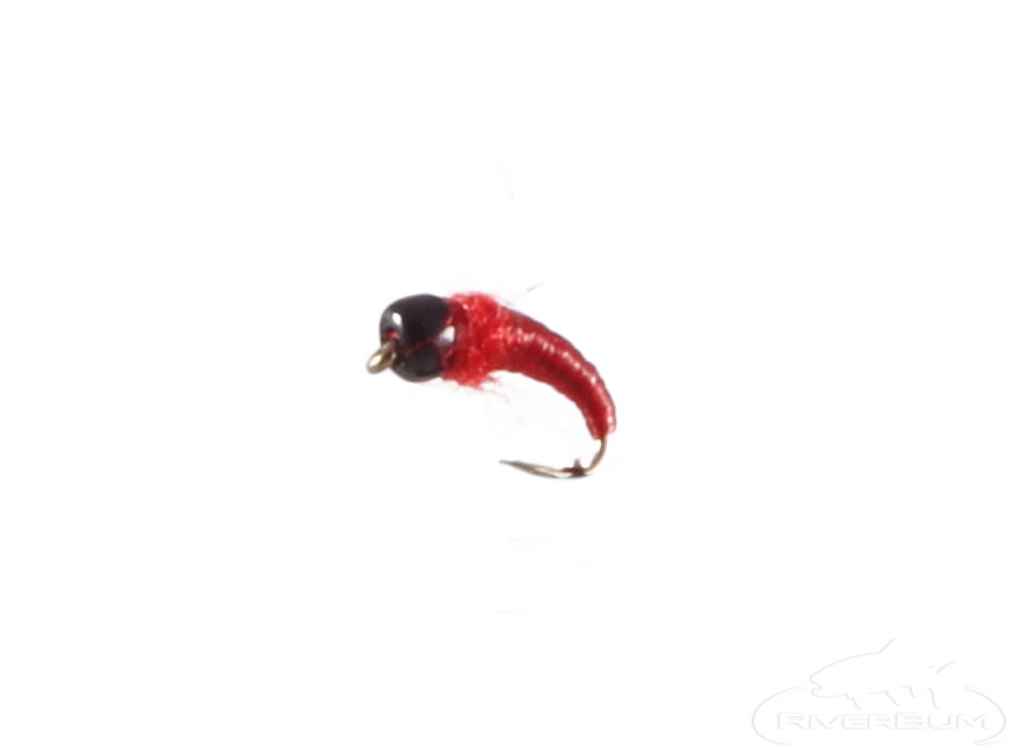
Rubber Midge, Bead Head, Red
Midge fishermen never seem to stop at just a few patterns in their arsenal when it comes to choices to tie on when casting to a promising piece of water. The Red Bead Head Rubber Midge is a simple Midge pattern that can be a productive part of your selection. Drop it under a dry pattern to fish just below the surface film, or drift the deeper water columns with a large nymph as the lead the Red Bead Head Rubber Midge is an effective pattern.
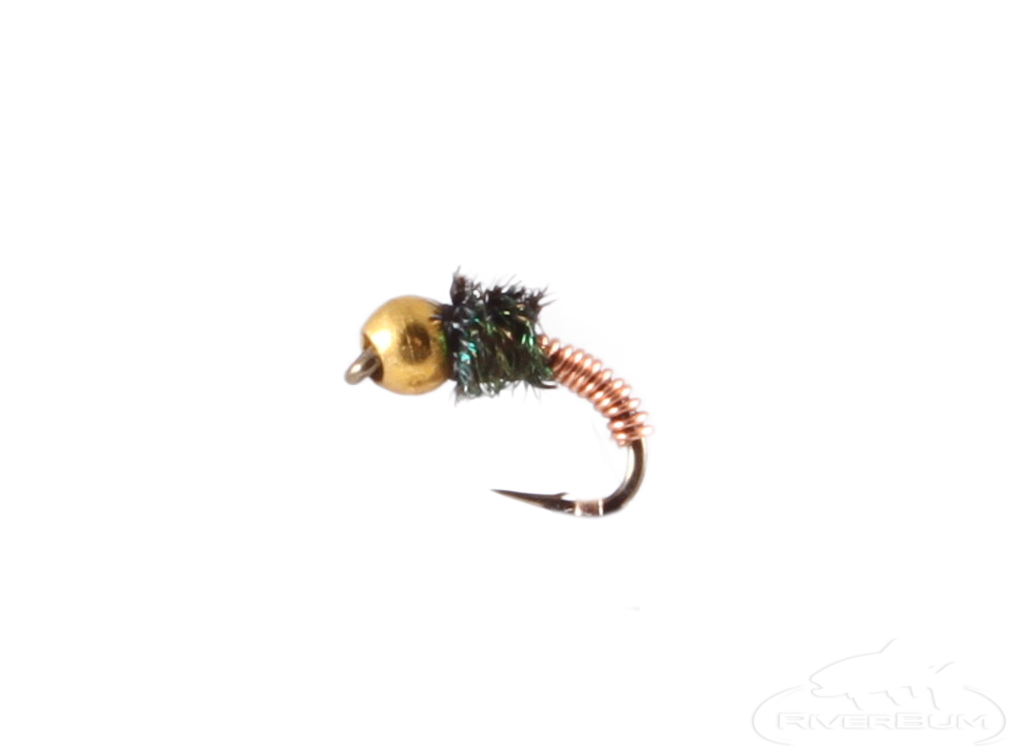
Brassie, Bead Head, Peacock
The basis for the Peacock Bead Head Brassie was found years ago some wise or lucky flyfisher that discovered a little wire wrapped around a hook would catch fish. The addition of a buggy looking head has made this one of the most successful nymphs ever. The brassie is a useful attractor or midge larva in most places where trout and grayling are found.
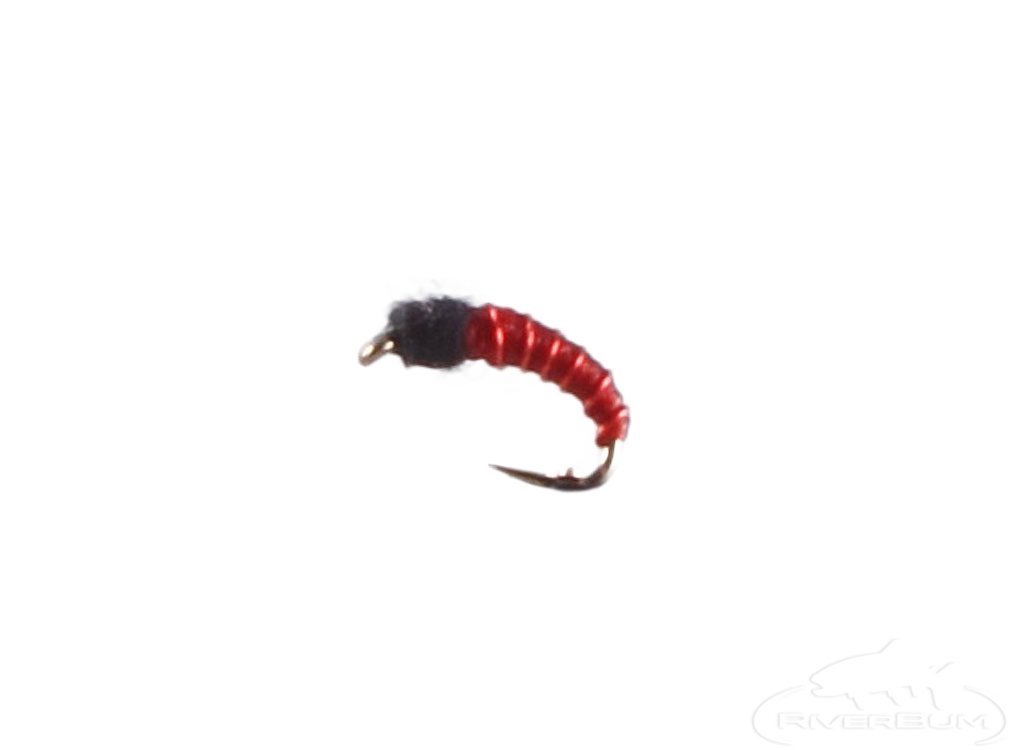
Rubber Midge, Red
The Red Rubber Midge is a simple, sparsely dressed Midge pattern. Many times simple can be deadly effective and this fly fished to midging trout can be just such a pattern. Suspended as a dropper just under the surface or presented delicately drifting in the deeper water section the Red Rubber Midge can be a successful pattern in your midging pursuits.
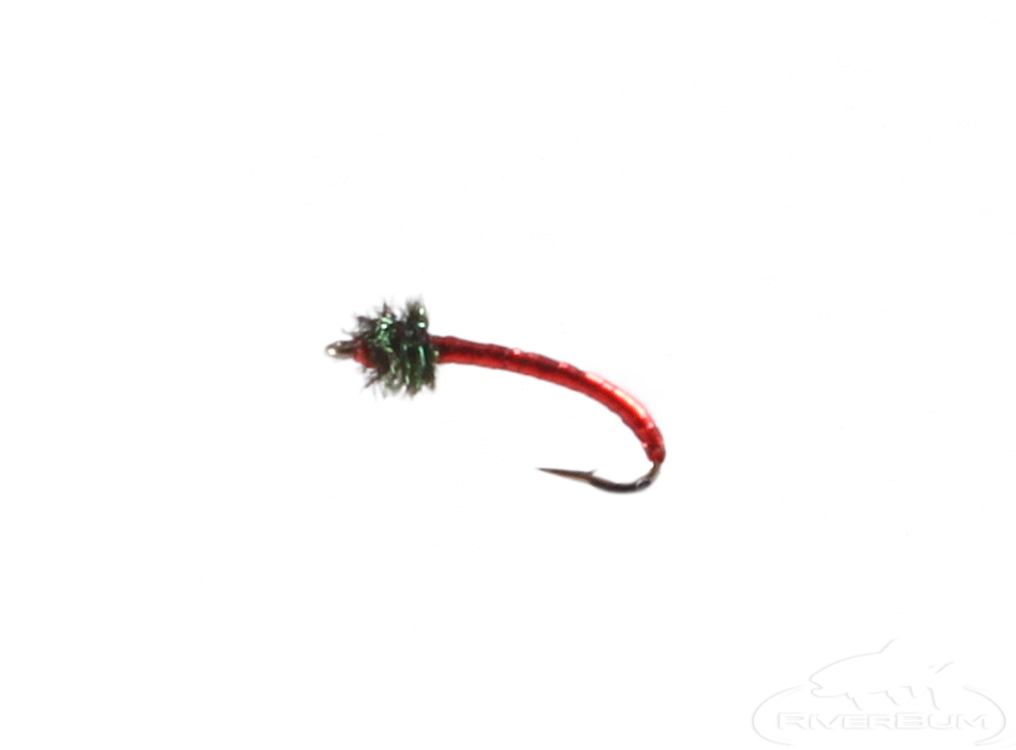
Disco Midge, Red
The Red Disco Midge takes flash to new levels. This midge larva pattern is highly visible and highly effective for aggresive trout in waters where midges make up a large part of their diet. It is one of the best midge patterns in slightly dirty water or tailwaters with a lot of drifting debris.

Crystal Midge, Brown, Tungsten Bead
This lifelike pattern tempts the strikes out of the pickiest trout. Ideal in spring creeks, streams and rivers. The Crystal Midge, Brown, Tungsten Bead gets the fly down in the water column quickly. This is a must have for picky trout feeding on the tiny insects.
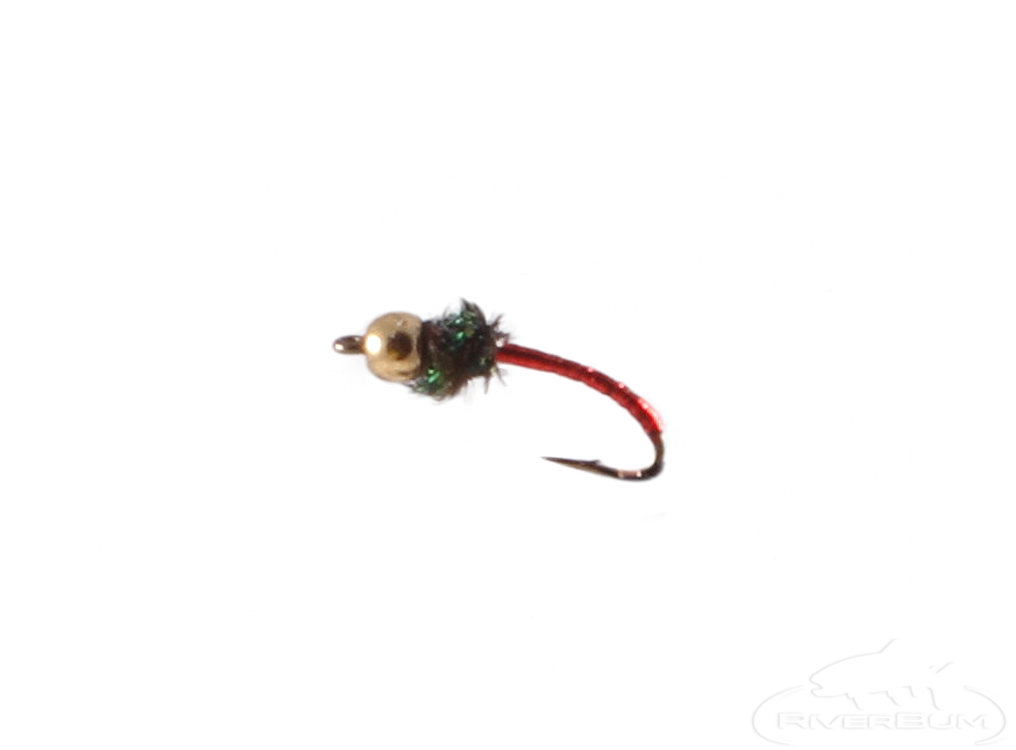
Disco Midge, Bead Head, Red
The Red Bead Head Disco Midge takes flash to new levels. This midge larva pattern is highly visible and highly effective for aggresive trout in waters where midges make up a large part of their diet. It is one of the best midge patterns in slightly dirty water or tailwaters with a lot of drifting debris.
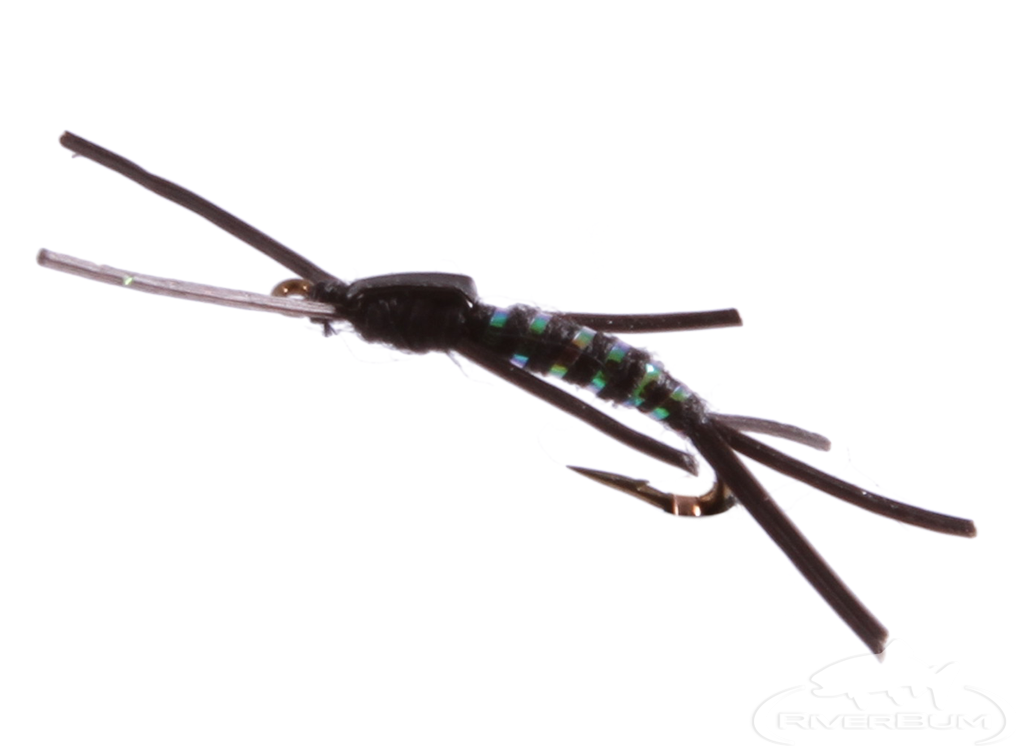
Ghost Nymph, Black
The Black Ghost Nymph is a unique fly pattern initially developed on Western tailwaters. This fly aside from playing a role in imitating darker mayfly nymphs, is probably best suited as an attractor or searching nymph pattern. The long legs and iridescent body beckon fish for a closer look before finally coaxing them to pick it up. The Black Ghost Nymph should occupy a space alongside your best searching nymph patterns.
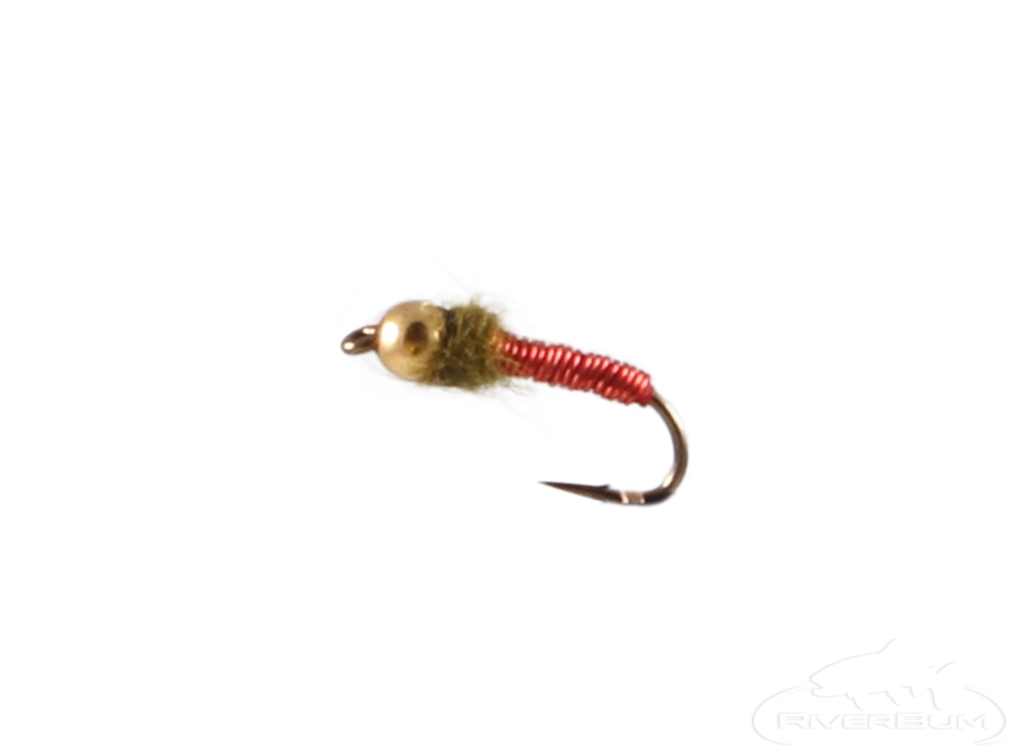
Brassie, Bead Head, Red
The simple process of wrapping wire around a hook creates a perfect silhouette of a midge larvae. The addition of a buggy looking head and bead has made this one of the most successful nymphs ever. The Red Bead Head Brassie is an effective attractor and one of the best midge larva patterns around. Chironomids are one of the most important food sources in many waters, for this reason the Red Brassie will work year round almost anywhere.
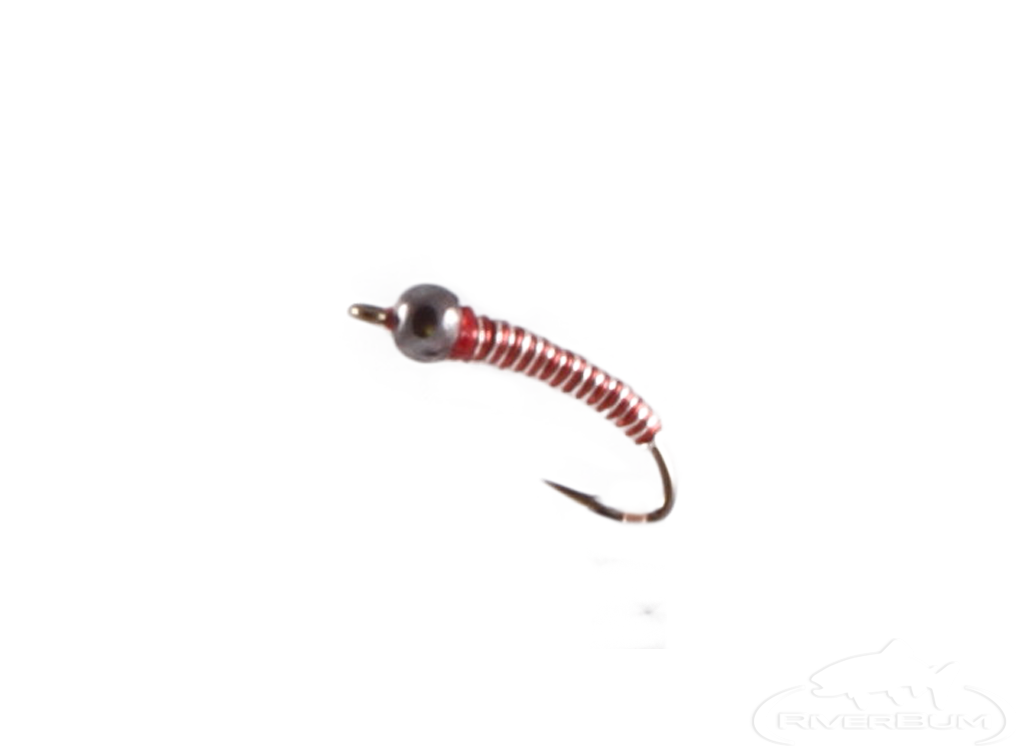
Brassie, Bi-Color, Bead Head, Silver-Red
The Silver-Red Bi-Colored Brassie has a segmented appearance given by alternating wire colors and a slim dubbed head. Brassies are proven patterns in all waters using multiple techniques and the Silver-Red Bi-Colored Brassie is a critical pattern in that group. This is a staple midge pattern that is very effective, drawing fish with its midge characteristics and flashy appeal. A collection of various Brassies need to occupy at least a couple of rows in your fly box
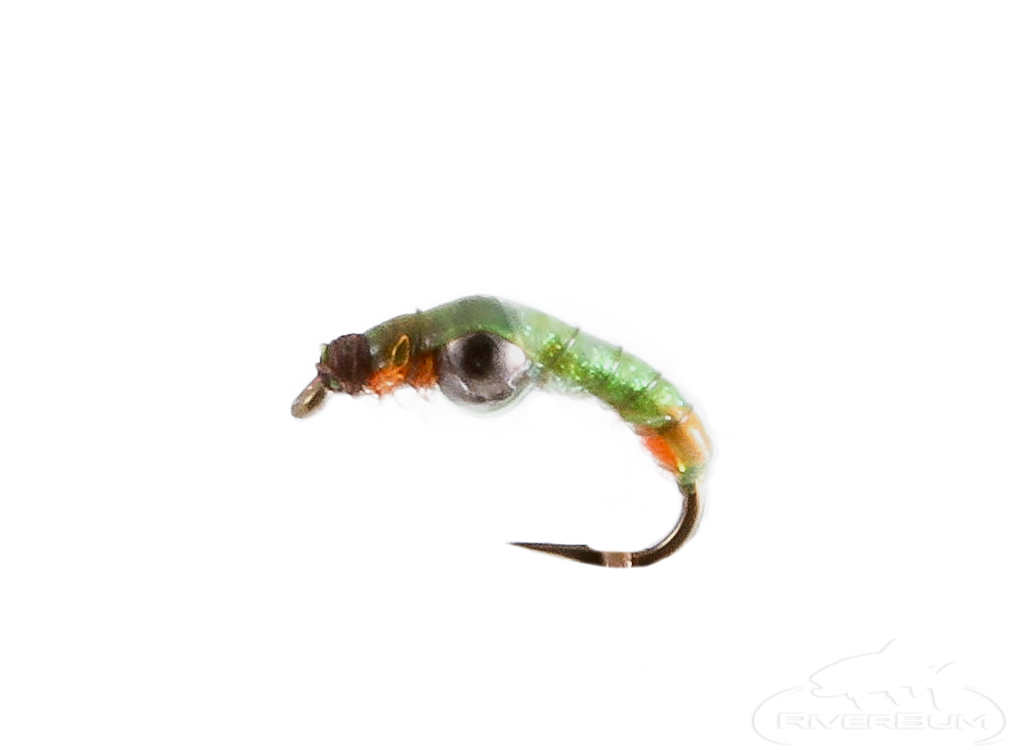
Czech Nymph, Depth Charge
The Czechs are masters of nymph fishing for trout, and this fly pattern is designed to get down hard and fast where the fish are feeding. The heavy weight of the Tunghead makes it the anchor for a Czech dropper system that has proven deadly on so many American rivers.
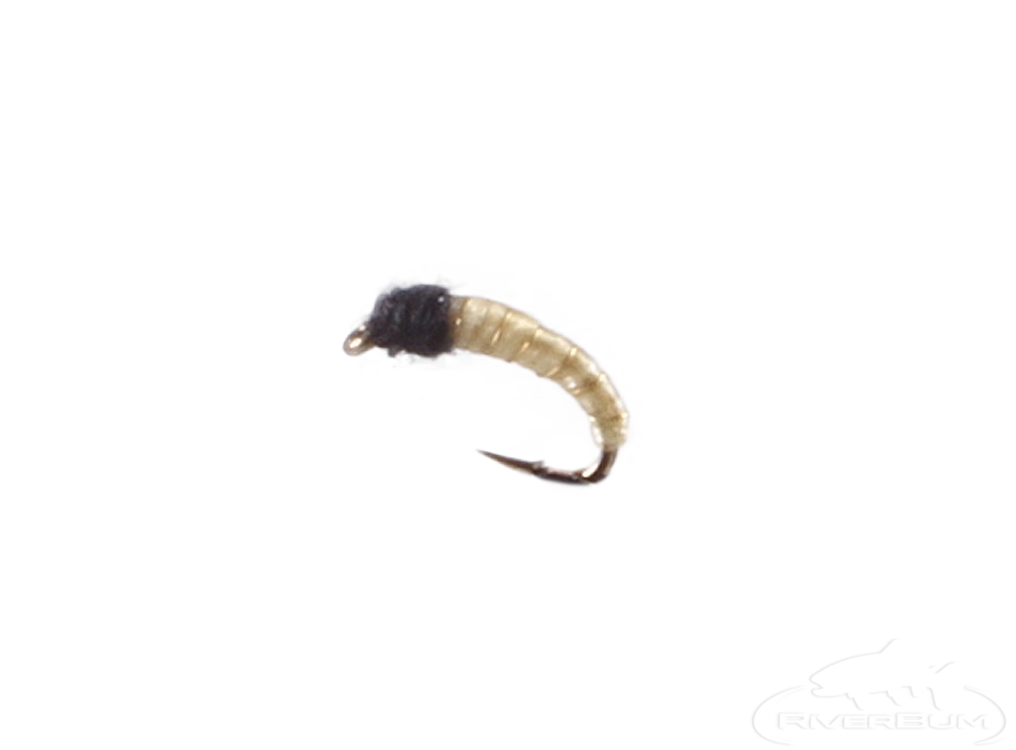
Rubber Midge, Cream
The Black Rubber Midge is a simple, sparsely dressed Midge pattern. Many times simple can be deadly effective and this fly fished to midging trout can be just such a pattern. Suspended as a dropper just under the surface or presented delicately drifting in the deeper water section the Black Rubber Midge can be a successful pattern in your midging pursuits.

Brassie, Bi-Color, Green-Black
The Green-Black Bi-Colored Brassie has a segmented look given by alternating wire colors and a slimmer dubbed head has made this fly even more realistic and fishy than its popular predecessor. Use this fly wherever midges are an important food item. Aggressive trout seem to prefer this heavier flashier fly to many other midge imitations.
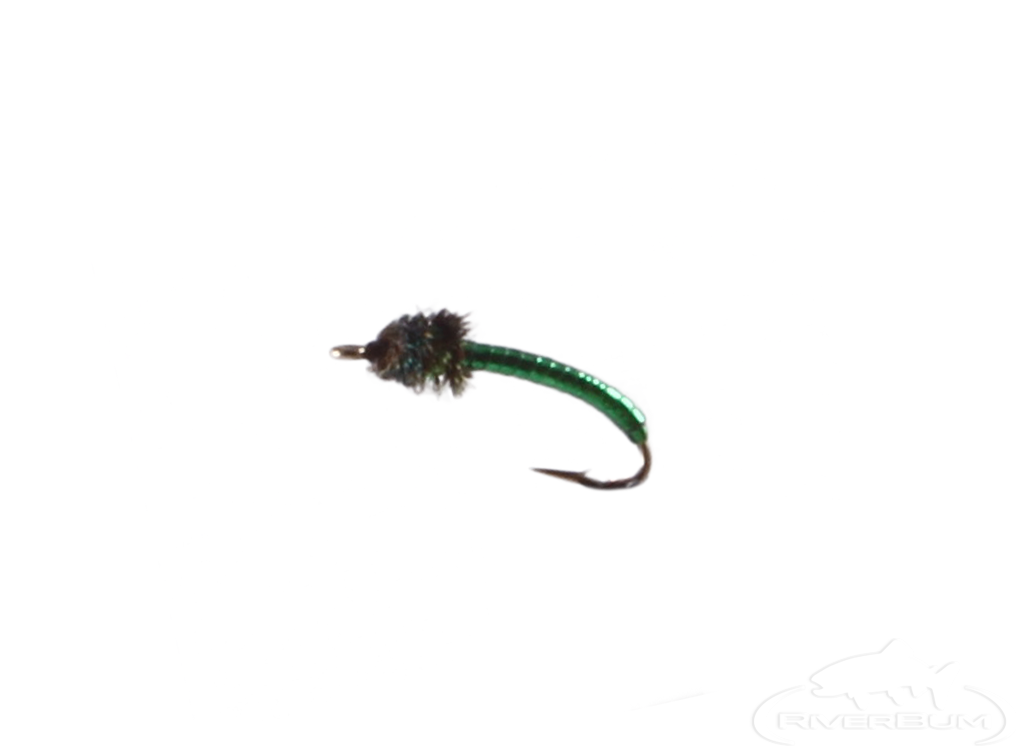
Disco Midge, Green
The Green Disco Midge takes flash to new levels. This midge larva pattern is highly visible and highly effective for aggresive trout in waters where midges make up a large part of their diet. It is one of the best midge patterns in slightly dirty water or tailwaters with a lot of drifting debris.

Crystal Midge, Black, Tungsten Bead
This lifelike pattern tempts the strikes out of the pickiest trout. Ideal in spring creeks, streams and rivers. The Crystal Midge, Black, Tungsten Bead gets the fly down in the water column quickly. This is a must have for picky trout feeding on the tiny insects.

Brassie, Bead Head, Natural
The basis for the Natural Bead Head Brassie was found years ago some wise or lucky flyfisher that discovered a little wire wrapped around a hook would catch fish. The addition of a buggy looking head has made this one of the most successful nymphs ever. The brassie is a useful attractor or midge larva in most places where trout and grayling are found.
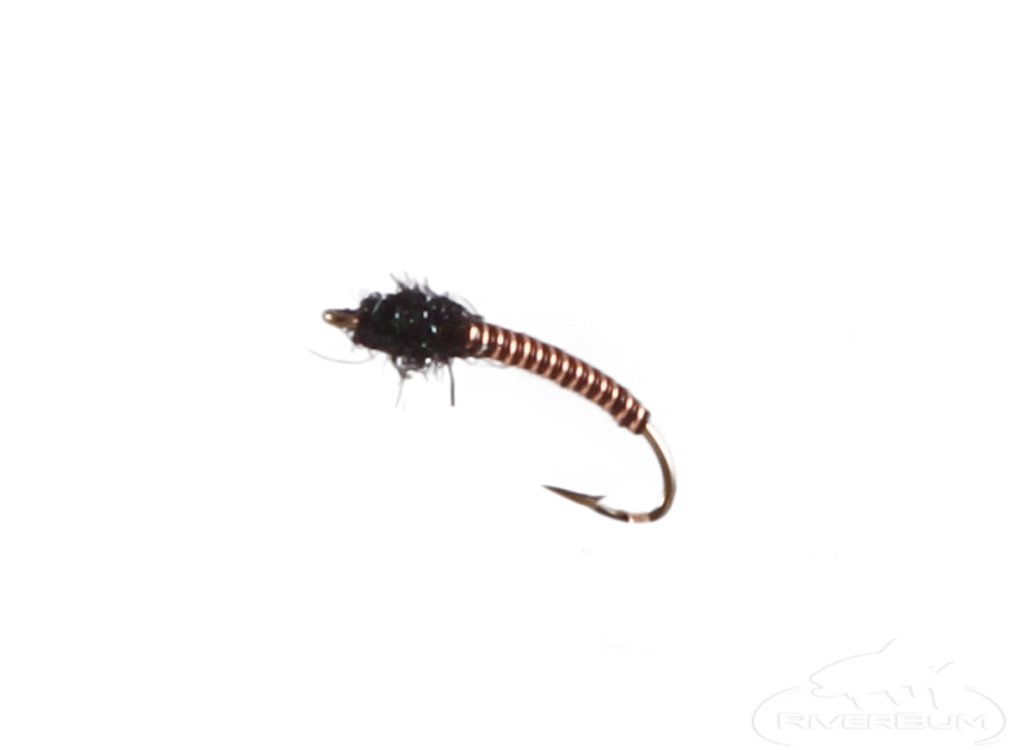
Brassie, Bi-Color, Copper-Black
The Copper-Black Bi-Colored Brassie has a segmented look given by alternating wire colors and a slimmer dubbed head has made this fly even more realistic and fishy than its popular predecessor. Use this fly wherever midges are an important food item. Aggressive trout seem to prefer this heavier flashier fly to many other midge imitations.




























